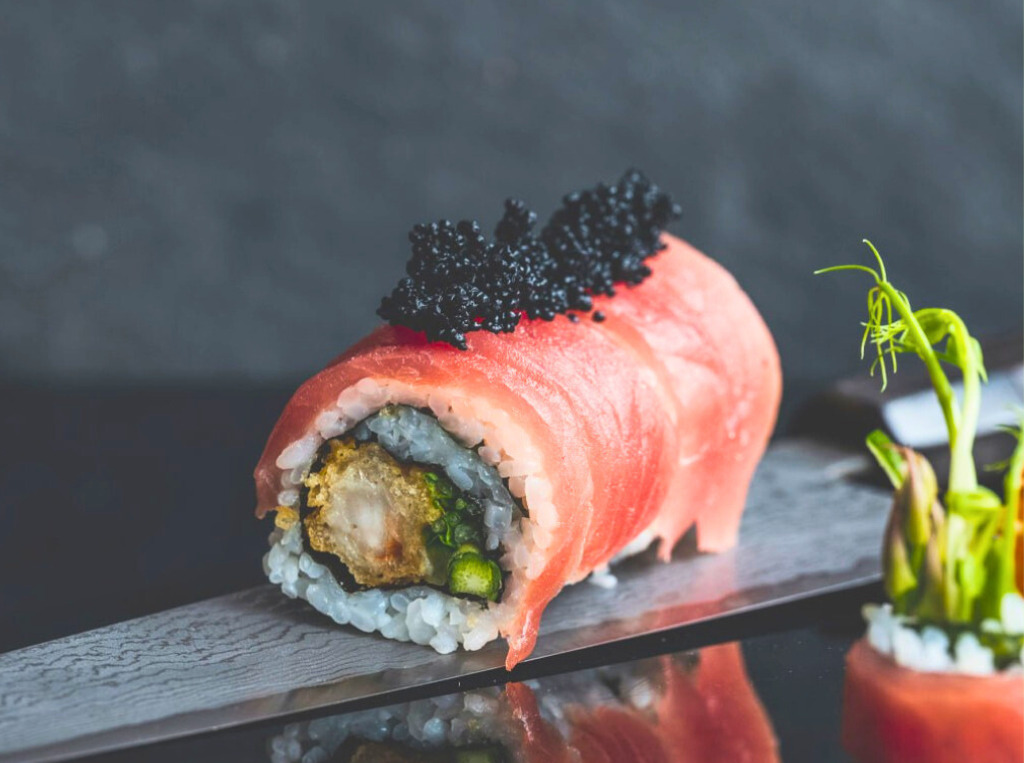Vegan Caviar: The 5 Best Plant-Based Brands to Make Your Next Ultra-Luxe Dinner Party Roe-markable
5 Mins Read
Molecular gastronomy is great and all that, but if you’re looking for minimum fuss, some brands are making vegan caviar that will have your dinner guests doubting you.
Caviar isn’t something that most of us eat on the regular – and neither should we, given that these fish eggs carry a huge cost for both our wallets and the planet. One highly prized variety is said to be the most expensive food in the world, but these salted roe are acquired from slaughtered fish at a demand that is far outpacing their numbers. Sturgeons – the primary species associated with caviar – are the most endangered species on Earth today, according to the WWF.
So in a bid to offer products that are better for the environment and more wealth- and diet-inclusive, companies are making alternatives to caviar in multiple ways. Some – like Magiccaviar, CellMEAT and Marinas Bio – are opting to use cell cultures to make cultivated caviar, while others are developing plant-based versions.
There are countless recipes online to make the latter, using a molecular gastronomy technique called spherification that involves submerging droplets of a sodium alginate solution in chilled oil to make little pearls that resemble caviar. But these don’t really taste much like the real thing – and can also lead to a lot of waste and fuss.
To feed caviar-hungry vegans, plant-based caviar provides the satisfying textural, visual and taste attributes associated with conventional caviar, but without the animal cruelty, environmental damage and ridiculously high prices. Here are five of the best vegan caviar brands.
Cavi-art
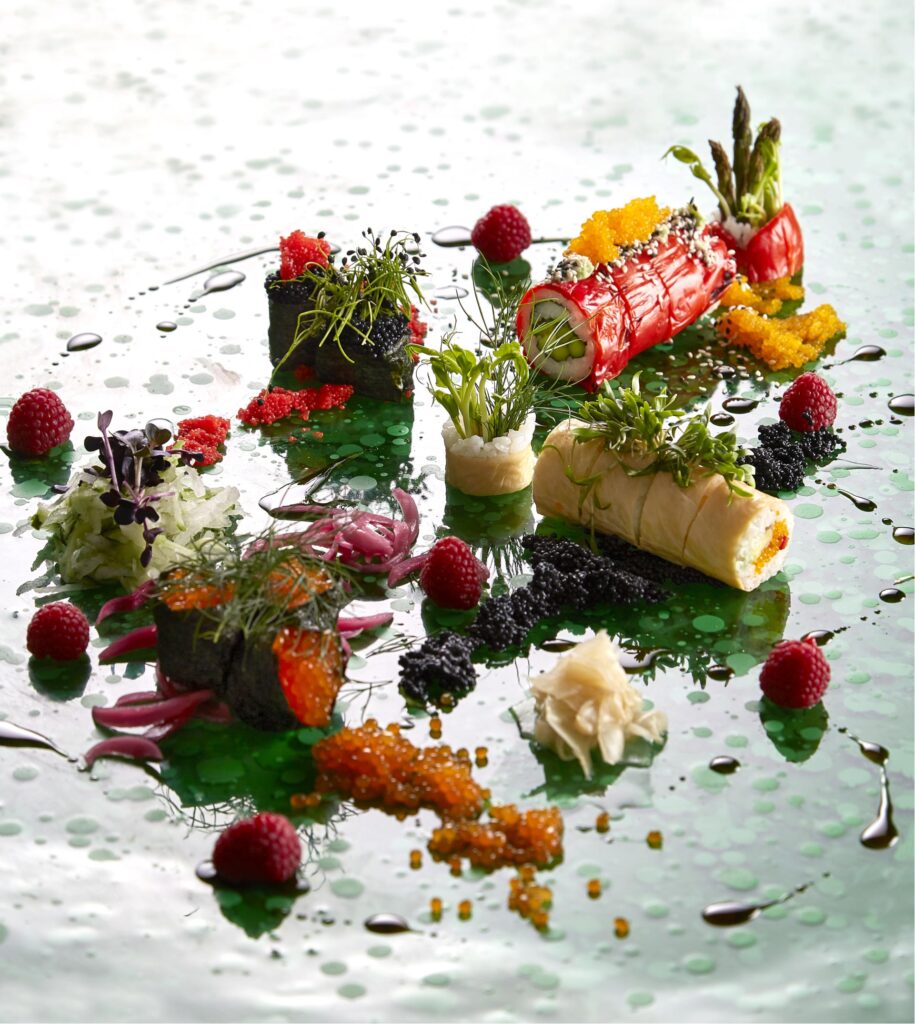
It’s perhaps fitting that a country associated with high-end Michelin-starred cuisine is home to one of the best-known plant-based caviar companies, Cavi-art. The brand makes three types of fish egg alternatives using kelp seaweed, primarily for foodservice and other food brands.
The eponymous Cavi-art – a winner of PETA’s Best Vegan Luxury Food Item award – are designed as substitutes for lumpfish, cod and trout roe (among others) in colours like black, red, orange, yellow, wasabi green, pink and more.
Meanwhile, the Tosago range contains alternatives for masago (smelt fish eggs) and tobiko (flying fish roe), which are used in sushi. These are available in orange, yellow, black and green shades. And the Food-art lineup contains what Cavi-art describes as flavoured seaweed pearls in lemon, balsamic vinegar, apple, strawberry and grape variants, which can be used for desserts too. All of Cavi-art’s products are produced locally in Denmark.
You can find Cavi-Art’s vegan caviar products online and in various restaurants and retail stores.
Zeroe Vegan Caviar
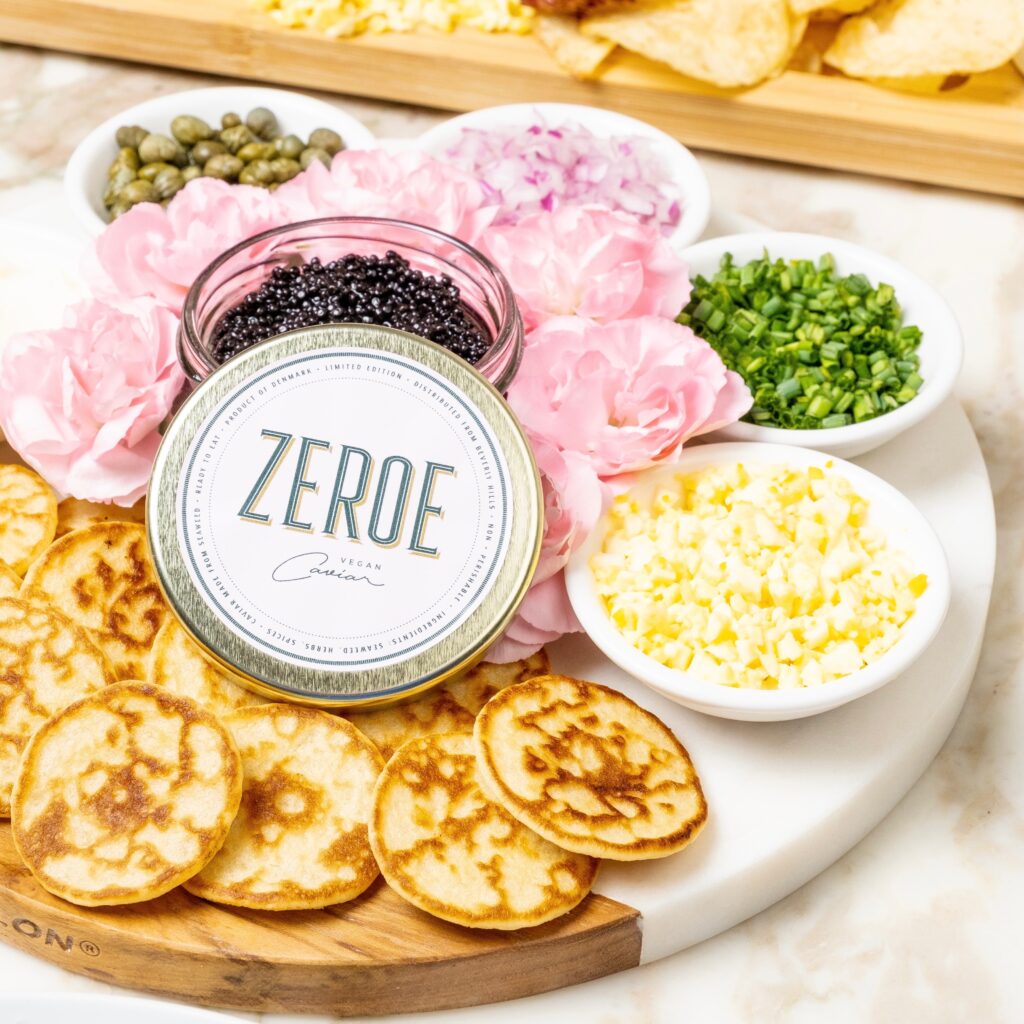
Another Danish vegan caviar producer, Zeroe uses seaweed “grown naturally off the coast of France”. The shelf-stable caviar has received rave reviews from influencers and celebrities online, with its signature black hue providing a striking visual edge to dishes.
Zeroe’s plant-based caviar is made by suspending seaweed in clean water, before extracting and forming it into spheres. To boost the flavour, it’s complemented with ingredients like cayenne, black pepper, turmeric, laurel, leek, dill and tarragon, which are sourced from across Europe. While it is shelf-stable, the brand recommends serving the fish egg substitutes chilled for the best experience.
You can find Zeroe Vegan Caviar online starting at $27 for a 55g jar.
Cavinoir
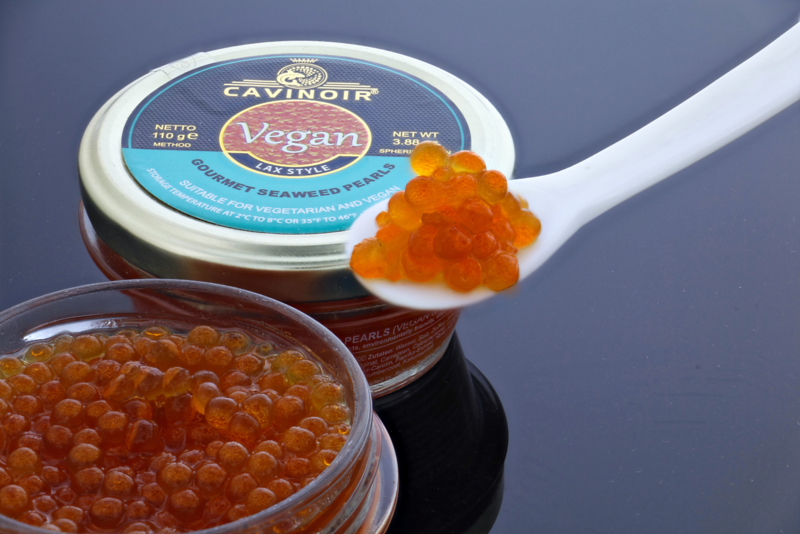
While not an exclusively vegan brand, Dutch producer Cavinoir (formerly Tzar Caviar) has two plant-based roe products: a shiny black-coloured variety and a lox-style roe (keta caviar) with a reddish-orange hue.
Both products have what the company describes as a “subtle sea flavour”, boasting “salty, fishy, umami, complex” notes that melt in the mouth. These gourmet seaweed pearls are a commercial iteration of the spherification method, using sodium alginate, agar agar, sunflower oil, spices, lactic acid and a stabiliser.
You can find Cavinoir’s vegan range online for €9.95 per 110g jar.
Albert Heijn
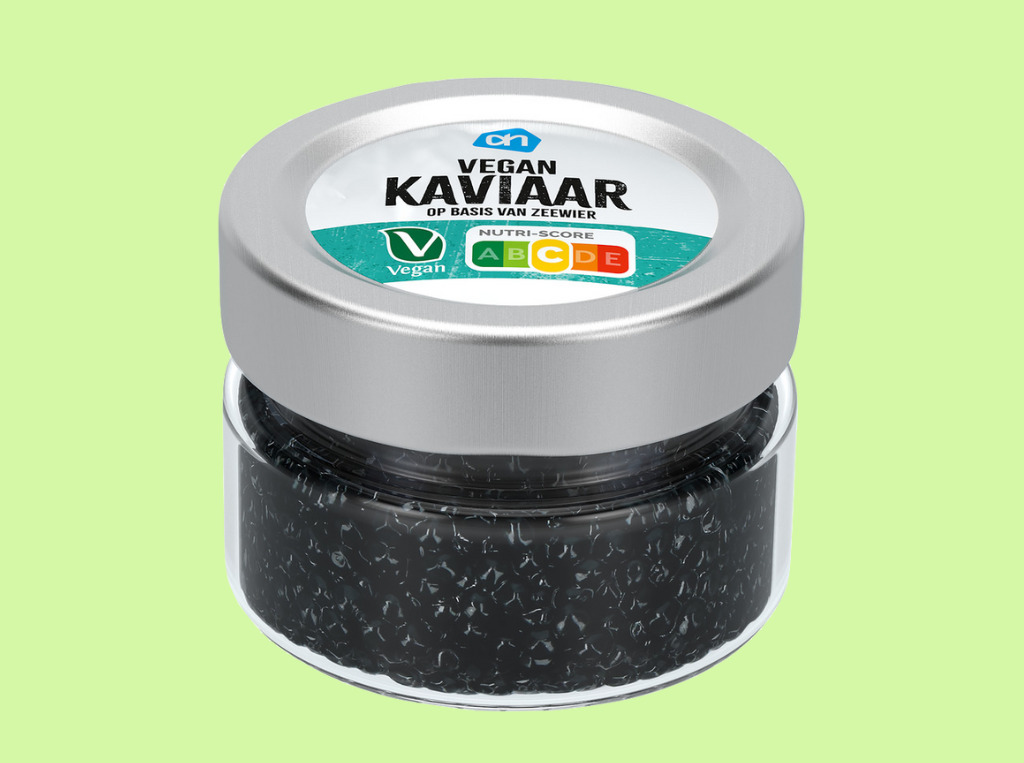
Another Dutch entry on this list – and a surprising one at that – is Albert Heijn, the supermarket chain. You don’t usually stroll around looking for caviar in your weekly shop now, do you? But you could if you wanted inexpensive vegan caviar in the Netherlands.
Albert Heijn’s own-label Vegan Kaviaar is also a seaweed-based spherification alternative that comes in a black hue. The company uses seaweed and cayenne extract alongside rapeseed oil, citric acid, spices, herbs, colourings, stabilisers and preservatives.
You can find Albert Heijn’s vegan caviar online or in-store for €1.99 per 50g jar.
Deli-Caviar
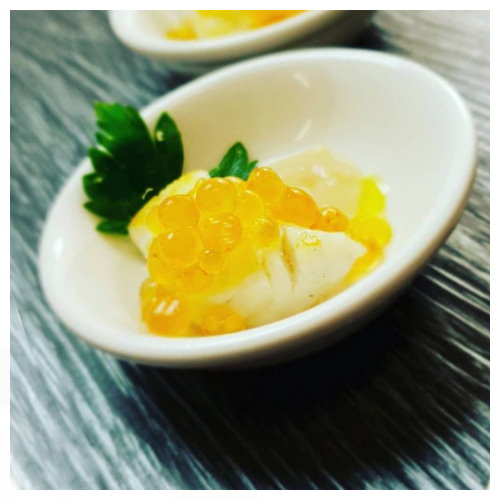
In Germany, Berlin-based Deli-Caviar makes flavoured agar-agar-based vegan roe, with a colourful lineup bare striking visuals. Its most popular offering is the rosewater caviar, which uses Damask rose oil and stevia as the main flavouring agents.
In addition, there are two balsamic varieties in black and white (with balsamic vinegar, grape must and olive oil), an aqua-coloured blue gin caviar version, a deep red cherry flavour, and an orange blossom water one. Additionally, Deli-Caviar makes whiskey-honey flavoured caviar too – but these are vegetarian, not vegan.
You can find Deli-Caviar’s vegan caviar online for €13.99 per 110g jar.
Bonus: Wanna Greens
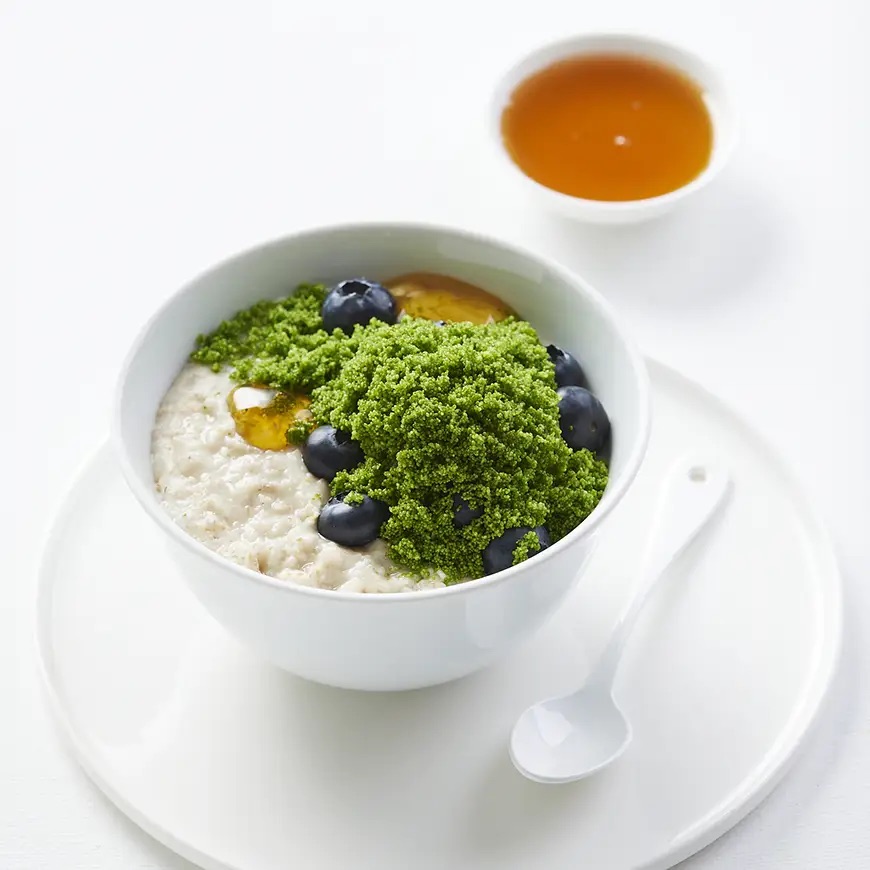
Not exactly a caviar replica per se, but Israeli company GreenOnyx’s ready-to-eat duckweed brand Wanna Greens makes mini green pearls made from these water lentils and marketed as green caviar. These are grown on an urban farm and can be used in both sweet and savoury applications, and have made it onto trial menus of some Michelin-starred restaurants.
You can join Wanna Greens’ waitlist for the green duckweed, which is expected to sell at $30 per kg.

